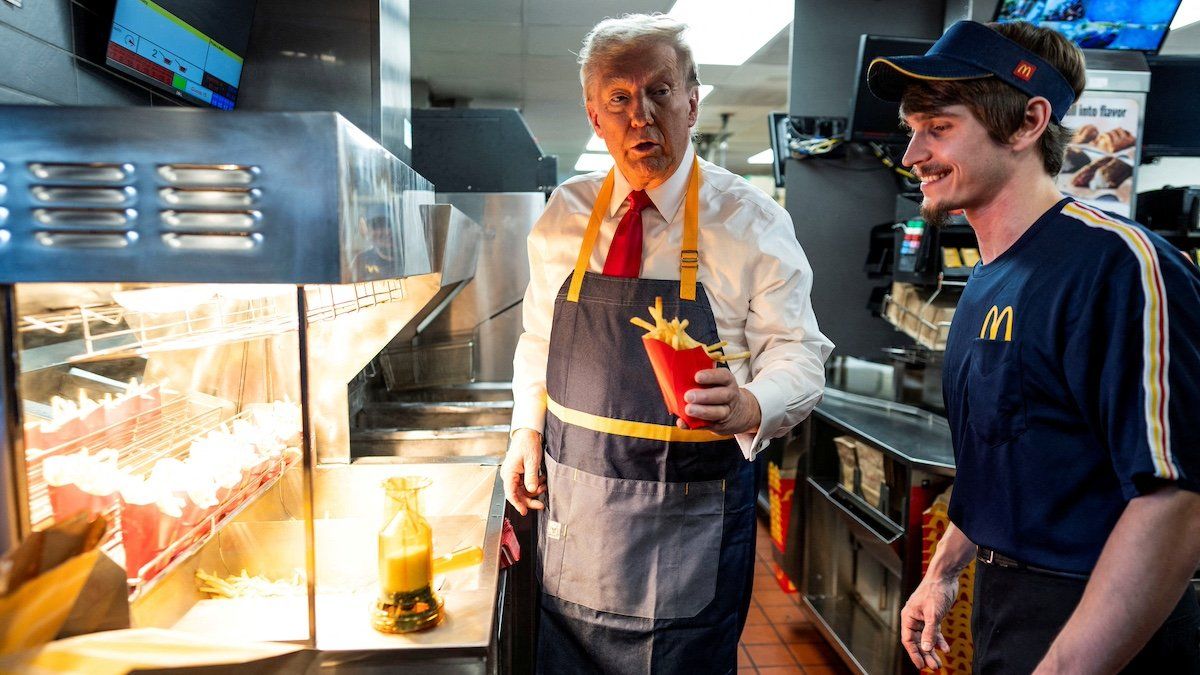Donald Trump has vowed to impose tariffs on China if it blockades Taiwan. “I would say: If you go into Taiwan, I’m sorry to do this, I’m going to tax you at 150% to 200%,” he told The Wall Street Journal’s editorial board last week.
When asked whether he would use military force for Taiwan, the former president said: “I wouldn’t have to, because [Xi Jinping] respects me and he knows I’m f— crazy.” Beijing reportedly does see more upside in Kamala Harris, precisely because of Trump’s erratic behavior.
When asked about Vladimir Putin, Trump said, “I got along with him great,” but noted that he once told the Russian leader he’d hit him “right in the middle of fricking Moscow” if he invaded Ukraine.
Are Trump’s numbers fake news? Meanwhile, Trump’s campaign may not be reaching critical voters in Arizona and Nevada, where leaked data revealed nearly a quarter of door-knocks could be fraudulent. Canvassers for America Pac, a political action committee founded by Elon Musk, stand accused of falsely claiming to visit homes, potentially undermining Trump’s ground game with just 15 days to go before Election Day.
America Pac denies widespread fraud, but if true, it could be a serious setback as Trump and Kamala Harris remainneck and neck inboth states.